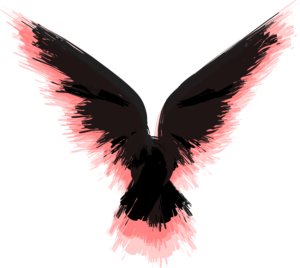While the collection of honey and beeswax is thought to have been happening since roughly the beginning of mankind, the first known record of this is currently believed to be a cave painting from Spain. I will leave a link in the episode journals because there is no way I’m getting the pronunciation correct.
However, we are talking about beekeeping, which is defined as keeping and caring for bees in an artificial dwelling, nest, hive, cavity, or structure. (And when I say cavity, I do not mean in the mouth. That sounds painful!)
The first known documentation of beekeeping comes from Egypt during the first dynasty, about 3,100 BC. At that time, they used an artificial clay tube that resembled a log. They would stack these in the dirt and make a wall out of them. That sounds terrifying to me as I have a mild phobia of flying things with stingers. They were also luring bees to new hives by mimicking the queen. It is believed that the ancient Egyptians used smoke to work with their bees, but the modern smoker was not invented until 1873.
(There is a personal story found only in the episode)
There are many documented cases of people covering or placing things over their heads when handling bees. However, the beekeeping suits we know today were invented in 16th century Europe, but many experienced beekeepers will forgo the suit instead of working off instinct and reading the bees. That basically means they have mastered interpreting bee body language and know when a hive is aggressive or docile. There are other beekeepers that believe working without a suit is foolishness.
Throughout history, there have been many types of man-made bee hives, everything from upside-down wicker baskets to today’s box hives. This part can be as simple or creative as you wish to make it.
I had always believed you stick the bees somewhere safe and return when it is time to get the honey. I was wrong. Beekeepers provide food by planting bee-friendly gardens and have bee-watering stations. They watch out for and protect their hives from things that could hurt them, such as some species of wasps, parasites, predators like bears, and more. They also make sure that hives do not become queenless hives. Queenless hives will die. Modern beekeepers must watch out for pesticides that could kill the bees.
Beekeeping is not something learned overnight. It would be trial and error over years to learn how to bee keep without some form of help. Whether it is someone who knows what they are doing or a wealth of information you can learn from, such as the internet.
Fun fact: Today, we have a twofer. Did you know that a third of the food we eat today is because of honey bee pollination? And that it takes roughly two million flower trips to make one pound of honey?
What could possibly go wrong?
Likely to go wrong:
Your character is likely to get stung.
Likely to go wrong:
There are many beginner mistakes, like checking the hive too often, not checking it enough, taking too much honey so the hive starves in the winter, and many, many more.
Possible to go wrong:
Your character gets stung and has an allergic reaction. This can be anything from swelling to itching to anaphylactic shock and they die because they can’t breathe.
Possible to go wrong:
Your character could come face to face with bears or other animals that want to eat the honey.
Unlikely to go wrong:
The bees could swarm your character’s home if they missed the bees preparing to swarm. They might find the queen decided to move into your home. There are many instances of bees making a colony inside walls or ceilings because they had access from the outside.
Unlikely to go wrong:
There could be human honey robbers. While it is less likely your character will be robbed from the hive in modern times, honey and beeswax are valuable commodities.
Improbable but technically still in the realm of possibilities:
They could swarm you, like a scene from Alfred Hitchcock’s: The Birds, but with stinging bees. If for some reason, they believed your character was a threat to the hive, the bees could swarm you. This is definitely something to think about using in a possible post-apocalyptic book, as killer bees have been known to sting until a person or animal stops moving and have chased people and animals over a mile swarming them after they got too close to a hive.
Helpful Links to Learn More:
History of Beekeeping:
https://www.buzzaboutbees.net/history-of-beekeeping.html
Beekeeping for Beginners:




